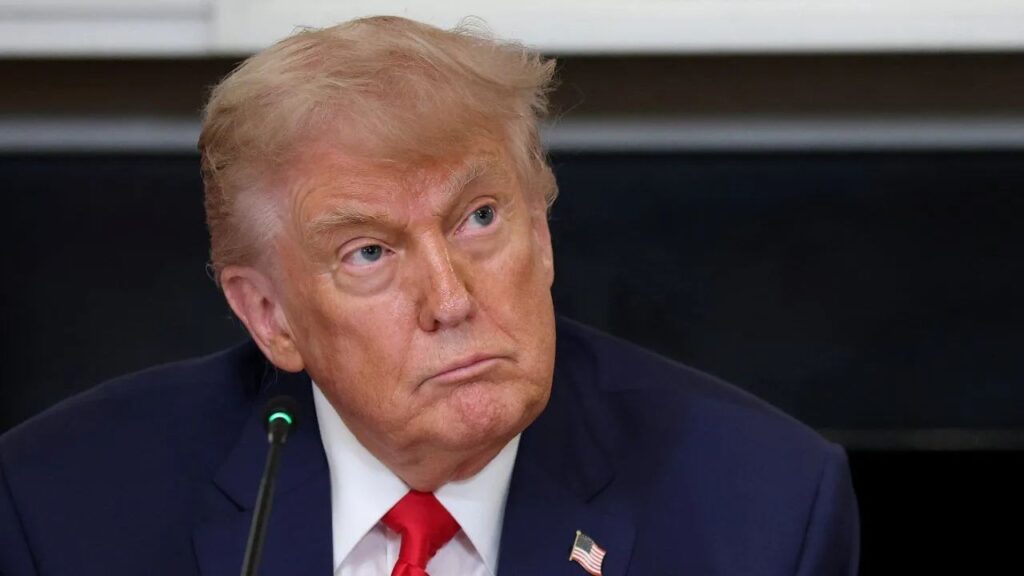The short answer? Technically, no, but in reality, he just did. On June 21, 2025, President Donald Trump ordered airstrikes on three Iranian nuclear facilities without congressional approval, sparking a firestorm over whether he overstepped his authority. The Constitution is clear: Congress holds the power to declare war. But modern presidents, including Trump, have repeatedly stretched, or outright ignored, that rule, relying on vague authorizations, emergency powers, and the sheer momentum of executive action to wage military campaigns without a formal declaration of war.
So, how did we get here, and what does it mean for the future of U.S. foreign policy? Buckle up, because this is a messy, high-stakes debate.
You Might Like: Jon Jones Net Worth 2025: The Rise and Fall of a UFC Icon
The Constitutional Clash: Who Really Controls War Powers?
The Founding Fathers were pretty explicit: Article I of the Constitution gives Congress the sole power to “declare war,” while Article II names the president “Commander in Chief.” That split was supposed to create a balance: Congress decides when the nation goes to war, and the president executes it. But over the last century, that balance has eroded. The last time Congress formally declared war was in 1942 during World War II. Since then, presidents have sent troops into Korea, Vietnam, Iraq, and Afghanistan using everything from U.N. resolutions to post-9/11 military authorizations (AUMFs) that have been stretched beyond recognition.
Trump’s strikes on Iran are the latest example. He didn’t ask Congress. He didn’t wait for a vote. He just did it, claiming the strikes were a “necessary, limited, and targeted” action to prevent Iran from getting nukes. Some Republicans, like Sen. Lindsey Graham, cheered him on, calling it “the right call.” But others, including GOP Rep. Thomas Massie and Democrats like Ro Khanna and Alexandria Ocasio-Cortez, slammed it as unconstitutional. Massie even tweeted, “This is not Constitutional,” right after Trump’s announcement.
So why does this keep happening? Because the War Powers Resolution of 1973, passed to rein in presidential overreach after Vietnam, has more loopholes than a block of Swiss cheese. It requires presidents to notify Congress within 48 hours of military action and withdraw troops after 60 days unless Congress approves. But guess what? No president has ever fully complied, and Congress has never enforced it with consequences. Trump’s team likely calculated that by the time lawmakers could muster a response, the strikes would be over, and the political fallout would be manageable.
The Fallout: Legal Battles, Political Chaos, and What Comes Next
Trump’s gamble might pay off politically, for now. With Republicans controlling Congress, impeachment over the strikes is unlikely, even though some Democrats are already calling for it. But the bigger question is: What happens if Iran retaliates? The U.S. has troops across the Middle East, and if Tehran hits back, say, by attacking bases or closing the Strait of Hormuz, Trump could argue he’s defending American lives, giving him even more leeway to escalate without Congress.
Legal experts are split. Some argue that if Iran’s nuclear program posed an “imminent threat,” Trump might have had the authority to act under his commander-in-chief powers. But others point out that the administration hasn’t provided public evidence of such a threat, just Trump’s word. And given his history of dismissing intelligence assessments (like those saying Iran was years away from a bomb), skepticism is high.
Also See: Is Hank Baskett Gay? The Untold Truth (2025 Update)
Meanwhile, Congress is scrambling to reassert itself. Bipartisan War Powers Resolutions have been introduced in both the House and Senate to force a vote on pulling U.S. forces out of unauthorized hostilities with Iran. But unless Republicans break ranks, unlikely, given leadership’s support for Trump, these bills will probably die. That leaves the courts as the last check, but judges usually avoid wading into “political questions” like war powers.
Bottom line? Trump’s Iran strikes have exposed a brutal truth: The president can effectively declare war without Congress if he’s willing to ignore the backlash. And unless lawmakers grow a spine, or voters demand change, this won’t be the last time it happens.
